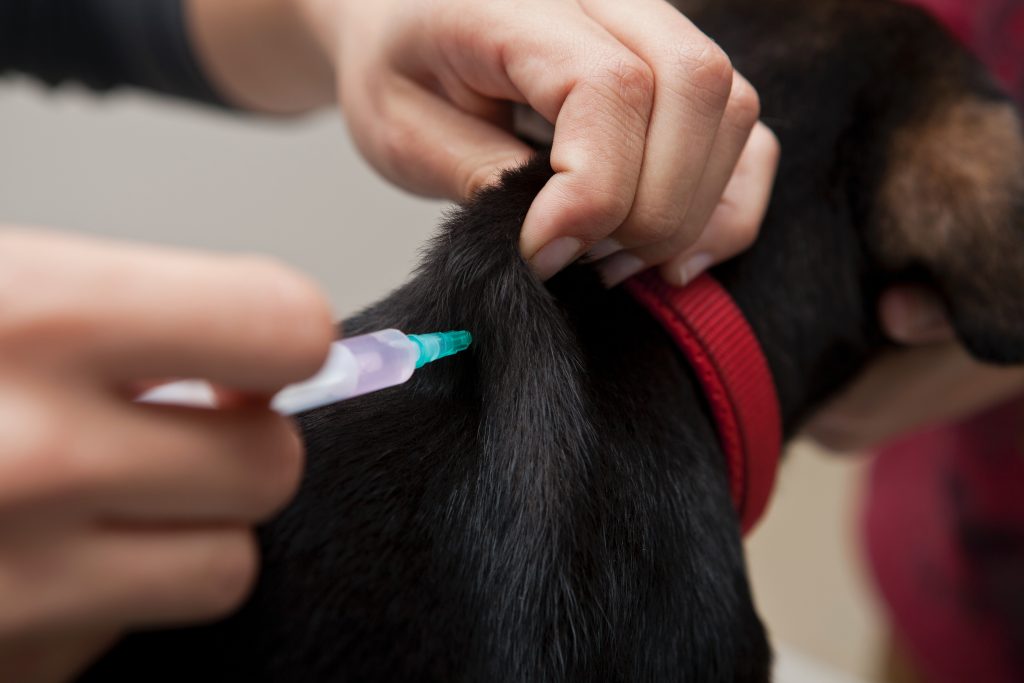
Posts by:
Dr. Phil Zeltzman, DVM, DACVS, CVJ
Dog Checkups & Preventive Care
Before your dog goes under anesthesia for surgery or dental work, your veterinarian will require blood work. Why do we ask for blood work? What’s the whole point? Is it a scam? Is it a way to get more money out of you? Is it a conspiracy by veterinarians who want to retire early?
Blood work is actually the easiest, fastest, cheapest and least invasive way to investigate, discover and monitor many health conditions. It is typically either sent to an outside lab or analyzed in-house, (i.e. at the clinic). Your dog’s blood work is handled by well-trained technicians and performed on sophisticated, automated machines. The price of blood work is based on the cost of such advanced and accurate machines, sample preparation, sample handling by the nurses and the analysis by the veterinarian.
Why is blood work performed?
There are several reasons for this test, all with one goal in mind — making sure that your dog is healthy enough for anesthesia and surgery. Since your dog will most likely not tell the veterinarian what might be wrong, your veterinarian can use your dog’s blood work to get a clear picture of what is going on beneath the surface.
What can be found in blood work?
There are two main components to routine blood work: the Complete Blood Count (or CBC) and the chemistry. The CBC provides detailed information about the various blood cells and platelets. Low counts of certain blood cells can indicate hidden conditions such as anemia, bleeding or even bone marrow or immune system disorders. High counts of certain blood cells can indicate conditions such as dehydration, inflammation or infection.
In addition to analyzing the blood cells, your veterinarian can look at the function of your dog’s organs by looking at the blood chemistry.
The chemistry consists of a panel of various proteins, enzymes and other chemicals in the bloodstream, these levels can indicate healthy or unhealthy conditions of the organs. Liver function is analyzed to detect liver disease, Cushing’s disease, trauma or the presence of a liver shunt, a condition that causes blood circulation to bypass the liver. Eliminating the possibility of a shunt is very important for any puppy undergoing anesthesia.
Kidney function is similarly analyzed to detect kidney disease. Ideally, kidney blood work goes along with a urinalysis to specify what type of kidney disease may or may not exist. Your dog’s chemistry also investigates blood glucose or sugar. Electrolyte levels are measured to check for dehydration, metabolic disorders, and conditions such as Cushing’s or Addison’s disease. The function of the pancreas and the thyroid function can also be tested.
Can blood work change a surgery date?
By performing these fast and minimally invasive tests, your veterinarian analyzes the inner workings of your dog — especially important before anesthesia or surgery. If a problem exists in the blood work, it can determine whether surgery can be done now, or if your dog’s health should be managed with medications or IV fluids prior to, during and after surgery. Early detection of diseases is always of the utmost importance in keeping your dog healthy, which is why we recommend blood work at every yearly physical exam, especially in older dogs.
So the next time your veterinarian recommends pre-surgical blood work, you can rest easy knowing that there is much more than meets the eye when it comes to the findings your dog’s blood will indicate. Remember that healthy equals happy, for you and your dog.
Questions to ask your veterinarian
- Why do you want to run blood work on my dog?
- Will you call me with the results or should I call you?
- How might blood work change what you do?







